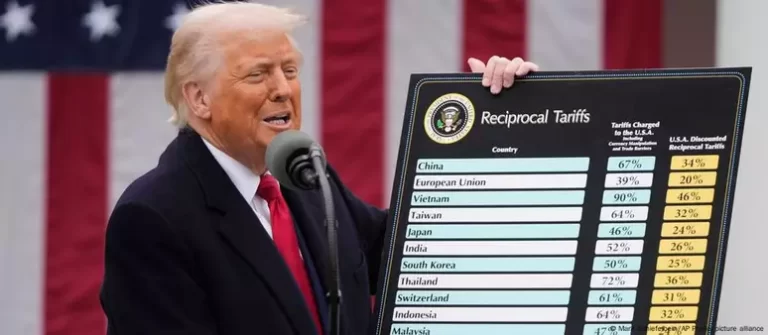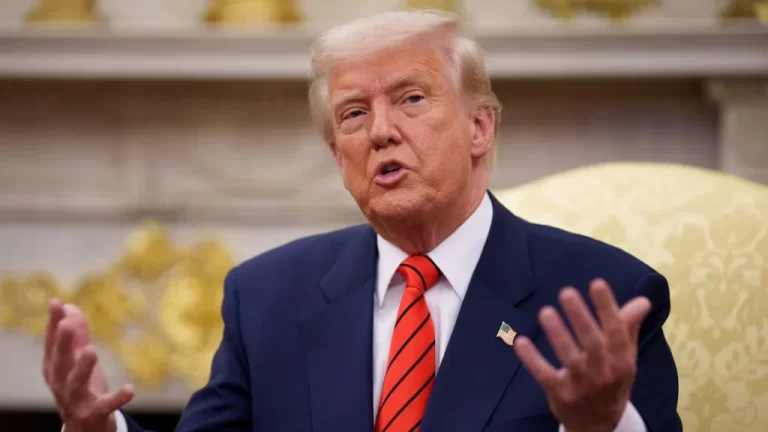
As tariffs hurt domestic consumers, Banco Santander’s executive chair said CNBC on Thursday that the United States may be more negatively impacted by the White House’s protectionist policies than Europe in the near future.
“A tax is what a tariff is.” Customers pay a tax as a result. Ana Botín stated this while speaking with Karen Tso of CNBC in Brussels during the 2025 IIF European Summit. In the end, there will be consequences for the economy. If all else is equal, there will be greater inflation and less growth.
Since the start of his second administration in January, President Donald Trump has levied a number of tariffs on imports into the United States, some of which have been postponed or reversed. Promoting home manufacturing and lowering trade deficits between the largest economy in the world and its trading partners are his goals.
Botín is not alone in warning about the detrimental effects of tariffs on the United States; many analysts agree, stating that the charges may eventually lead to increased inflation and put a strain on American consumers’ wallets.
“Europe will be less affected than the U.S. in the short term, on a relative basis,” Botín stated Thursday.
The European Union, the United States’ longstanding transatlantic friend, has taken a series of retaliatory actions in response to the application of both general and country-specific charges, including Wednesday’s announcement of a 25% duty on all auto imports into the United States, beginning from April 2.
Through a set of proposals that could significantly loosen previously strict fiscal regulations and raise around 800 billion euros ($863.8 billion) for the region’s increased defense spending, the group has also taken action to strengthen its autonomy.
“Today’s European banks are prepared to lend more and provide more economic help. We are powerful. “The capital is ours,” Botín declared. In order to increase their resilience in the case of financial crises, she also demanded more “flexibility” in EU regulations that presently establish the “buffers” that European lenders must maintain in addition to minimum capital requirements.
German and European defense stocks have increased in recent weeks due to the most recent EU plans and Germany’s actions to change its long-standing debt strategy to account for increased security spending.
But because of its heavy reliance on its struggling auto industry, Germany is the third-largest exporter in the world, making it susceptible to drastic changes in trade patterns and possibly to recessionary risks due to U.S. tariffs, German central bank governor Joachim Nagel warned earlier this month.



